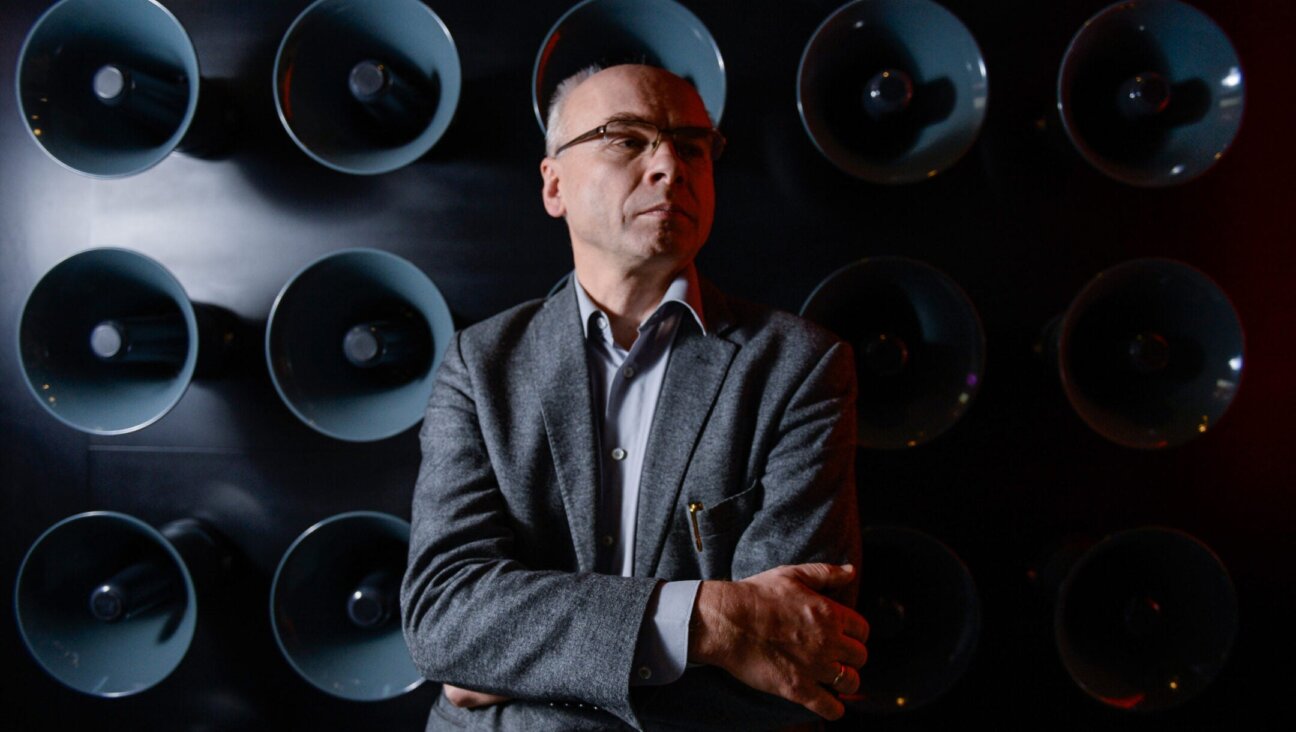Hungary Is Hungry for Jewish Food — and All the Dish

Graphic by Angelie Zaslavsky
Anti-Semitism may be running rampant in Budapest, but so is a Jewish-food craze.
At least that’s what Travel + Leisure discovers in its latest issue: “Jewish food — whether descended from the Mediterranean or the shtetl — is hugely popular right now… Food trucks serve knishes stuffed, oddly, with lamb, and serious restaurants, like Macesz Bistro, have become famous for things like latkes and ‘Jewish egg’ (chopped hard-boiled egg with duck fat and stewed onions). This interest in Jewish culture, however superficial, is a welcome development in Budapest, where anti-Semitism has long been an unfortunate reality.”
Pastrami in Poughkeepsie
Pining for pastrami in Poughkeepsie? It’s coming soon.
Morty’s Deli will open its doors this June, serving straight-up “kosher-style” fare. The menu’s still in formation, but owner Charles Fells tells the Poughkeepsie Journal that he’s going for “a New York deli experience” with trad food like house-made knishes.
Fire Shutters Foster Village Deli
We hate hearing about any deli closings, but this one’s especially heartbreaking: Foster Village Kosher Deli in Bergenfield, New Jersey has shuttered indefinitely after a devastating fire. Here’s hoping it’s slinging schmaltz again soon. More at the Jewish Standard.
Tuscon’s Israeli Food Fest
Four celebrity chefs from Israel will arrive in Tucson next month for the third annual Tucson Celebrates Israel Week, May 9–15.
They include Orli Varon Shushan of Nougatine in Beit Shemesh; Maya Klein, senior chef at Eilat’s Herods Palace hotel; Yael Shamir, a well-known chef in Eilat; and chef Sahar Refael of Cramim, who clinched the Israeli versions of TV cook-offs Knife Fight and The Kitchen.
Their appearances will include a four-course dinner at local Italian joint Vero Amore on Sunday, May 15. More at the AZ Jewish Post.
A Melting Pot Menu in Houston

A “Cubano Bagel” was one of the daily specials at this funky fusion food truck in Houston. Image by Facebook/Lunchbox
If you drew a line from India to Israel to Texas, you’d land at Houston’s hottest new food truck.
The Lunchbox is the brainchild of Chef Roy Uri, a son of Indian and Iranian-Jewish parents who settled in Israel. He’s now working to “unmatzo” Jewish food with Texas-twanged mashups of Indian, Mexican and Mediterranean.
“Here in the States, when people think of Jewish food they think of matzo balls and chicken soup. My Jewish food was completely different,” he tells Newsfix. “I never had a matzo ball until I left Israel.” Uri’s brisket, for example, is mango-braised, with a fried egg on top.
Kosher Cannabis
Sababa is Hebrew slang for “cool.”
It’s also the brand name of a new line of pot-infused snacks, whose founders are seeking kosher certification.
Parve and gluten-free, Sababa’s square-shaped clusters come dark-chocolate pecan and hazelnut; caramel-cashew and apricot; and molé spice with cacao and pumpkin seeds. The hecksher would make Sababa the first kosher pot edibles.
They’re a novel entry in the burgeoning medical-marijuana business. Observant Jews “want to consume on Shabbat, but they won’t smoke,” San Francisco-based co-founder Ezra Malmuth tells Forward contributor Alix Wall in JWeekly. “Seeking kashrut certification is a way to contribute back to the community that’s given so much to us.”
As the Forward has reported, rabbis have declared pot kosher when used for medicinal purposes.
Catholic Kosher Grocer in Mexico
The LA Times this week meets the Catholic grocer who’s helping Mexican Jews keep kosher.
Oaxaca-born Noe Trinidad Chavez had never met a Jew until he was 10, when he ventured to Mexico City for work. Now he’s the owner of two Jewish food shops in the multiculti community of San Miguel Tecamachalco, just west of Mexico City. The second-largest Roman Catholic country in the world, Mexico’s home to about 40,000 Jews.
Michael Kaminer is a contributing editor at the Forward.
















